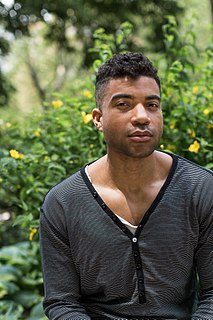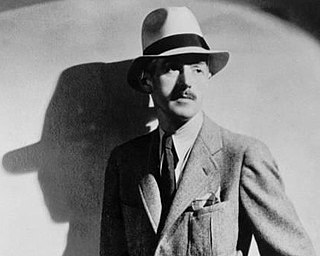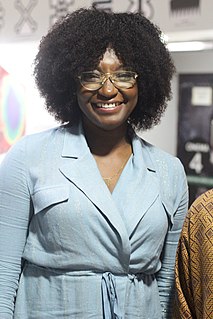A Quote by James Ivory
One of the challenges in writing the script Call Me by Your Name was that I had to find something concrete for the professor to do. In the book he is some kind of classics scholar. But I thought it would be interesting to make him into something of an art historian and archaeologist whose background was the classical world. It's always difficult when someone is supposed to be an intellectual. What do they do? You can't just film them sitting around and thinking all day. And that's what the business of the statues is all about.
Quote Topics
About
All Day
Always
Around
Art
Background
Book
Business
Call
Call Me
Challenges
Classical
Classics
Concrete
Day
Difficult
Film
Find
Had
Him
Historian
Intellectual
Interesting
Just
Kind
Make
Me
Name
Professor
Scholar
Script
Sitting
Sitting Around
Some
Someone
Something
Statues
Supposed
Supposed To Be
Them
Thinking
Thought
Whose
World
Would
Would Be
Writing
Your
Related Quotes
Every time I'm in the studio, I always think of my professor in undergrad. He was like, "There are so many artists in the world. If you're going to be an artist, make sure you have something to say. Don't just be an artist and put out bullshit. Have something to say." I guess that would be my philosophy and something I think about all the time. Every day when I'm in the studio I hear him and I see him. I remember him saying it in class. So that's something that I always want to make sure I have: I'm saying something with the work.
Parker wasn't supposed to be a series. He was supposed to be one book, and if he was only going to be in one book, I didn't worry about it. And then an editor at Pocket Books said "Write more books about him." So I didn't go back at that point and give him a first name. If I'd known he would've been a series, I would've done two things differently. First, I would've given him a first name because that means for 27 books, I've had to find some other way to say, "Parker parked the car."
When a man's partner is killed he's supposed to do something about it. It doesn't make any difference what you thought of him. He was your partner and you're supposed to do something about it. Then it happens we were in the detective business. Well, when one of your organization gets killed it's bad business to let the killer get away with it. It's bad all around-bad for that one organization, bad for every detective everywhere. Sam Spade
The director [Elfar Adalsteins] came to me through my agent and I had a read of the script [of the "Sailcloth]. I thought immediately this is someone who is writing for the cinema. Not having to go through the tedious business of taking something from literature and making that awful leap that is so difficult to make anyway, from literature to cinema. It's refreshing to be able to deal with a subject like that, to be written where the driving force is the image on screen and you don't need any words. The more that we can do that [in film], the better.
Certainly it's great to be able to talk to your friends about something. They might mention a film, and you can find all about it, and you don't have to wait months until you can find a book that might cover the subject and keep it in your head. You can have that kind of immediacy. But there's also something about it, where all the knowledge seems kind of fleeting. All the stuff I learn about in that way, I can be interested in for a day and then it's gone.
The script in many ways is limiting and novel is liberating. You get to go into the heads of your characters and their background and have fun with them; something you are discouraged from doing with a script. With the novel, I can tell you what the characters are thinking, I can tell you their view of the world, background information, things I wouldn't dare touch in the script.
I'm creating my own oasis in my house. I've got a lot of calming, soothing things around my house. The way it's set up, it's supposed to just be a breath of fresh air. I can find solace in painting and writing. I honestly love what I do, so it's not too much for me. Creating is something I've always been able to do, whether it's making little cartoons or writing a full-length script. It's something I really, really enjoy. I'm trying to make the best of what I've been given.
We humans have had from time unknown the compulsion to name things and thus to be able to deal with them. The name we give to something shapes our attitude toward it. And in ancient thought the name itself has power, so that to know someone's name is to have a certain power over him. And in some societies, as you know, there was a public name and a real or secret name, which would not be revealed to others.
There is something about participating; it is almost my religion. If the world is still here in 100 years, people will know the importance of participating, not just being spectators. Millions of small groups around the world, that don't necessarily all agree with one another, are made up of people who are not just sitting back waiting for someone to do things for them. No one can prove anything, but of course if I didn't believe it had some kind of power, I wouldn't be trying to do it.
The criteria [to take or refuse the role] is that I would love to have some kind of dialogue or communication with the director. I need to understand that we can communicate and that we like communication. That's something I have to have a strong feeling about. Secondly, I have to find the script intriguing or interesting. I don't have to understand the whole script, but I do have to find it intriguing. If those two things are present, that would probably be a yes.
I think challenges are what any decent writer would be all about. If you actually do find your slide and grease it, shame on you. Me, I get bored very easily. As a writer I get bored even faster than I do in real life. I mean, I like fast cars; I've driven a lot of racecars. You need some stimulation. If I find something that seems too difficult to do, too difficult to research, or beyond your writing abilities, it's a perfect invitation to try it.
I needed to create some dramatic tension to sustain the interest of the audience. For instance, the boy in the film is not in the play, so this relationship that he had with the former teacher, and his guilt, this is not at all in the play. I thought it would be interesting to look at in the film, and I added stuff like that around the main character. For me, it was not more difficult or less difficult.
I went to film school when I was 17, and of course when you are very young you think that there is nothing else in the world except film. At some point I started getting hungry to see something else. For five years I didn't make any films, I was traveling around the world, writing for newspapers, working in theater, working in opera, I thought I would never return to film.
I saved letters from my boss. There are things in there that are directly transcribed. I was so glad I did that. Sometimes when I was writing the book I wondered if some little writer hobbit part of my brain was back there puppeteering that action. But it really never, on any conscious level, occurred to me that I would write about it. I will say, I thought probably some day there would be an ancillary character in some novel - not in the one I was currently writing - that would be a dominatrix or something.
Isn't it splendid to think of all the things there are to find out about? It just makes me feel glad to be alive--it's such an interesting world. It wouldn't be half so interesting if we know all about everything, would it? There'd be no scope for imagination then, would there?But am I talking too much? People are always telling me I do. Would you rather I didn't talk? If you say so I'll stop. I can STOP when I make up my mind to it, although it's difficult.






































